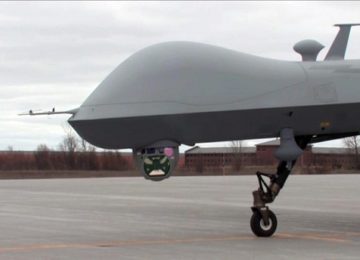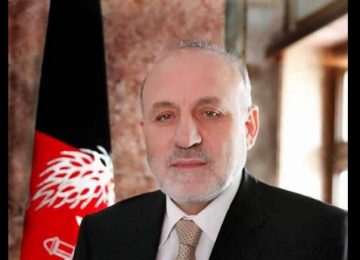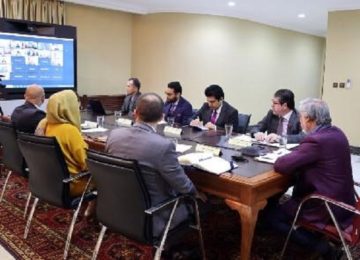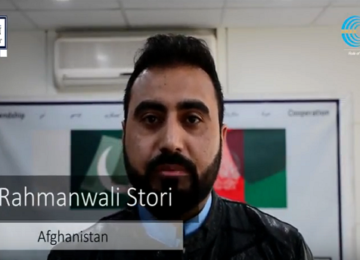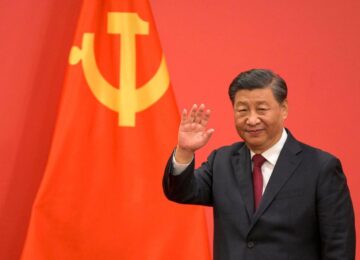Introduction:
Individuals do not matter in Iran. The state is based on principles, constitution, and institutions that ensure continuity of policy under the guidance of the Supreme Leader, Seyyed Ali Hosseini Khamenei, says Dr. Amiri Reza Moghadem, Iran’s Ambassador to Pakistan, in an interview with Imtiaz Gul, CEO of CRSS and ASC.
Below is the video and the transcript of the interview.
Transcript:
Q1: Hello friends, the world is facing significant turmoil, particularly in the Middle East and South Asia. Iran, having recently lost its President, finds itself in a complex situation. The late President had visited Pakistan, a crucial regional partner. The question now is how Iran will position itself amidst regional powers like China, Russia, and Pakistan. Joining me today is Iran’s ambassador to Pakistan, Dr. Reza Amiri-Moghaddam, who will share insights on the potential implications of President Ebrahim Raisi’s passing on Iran’s relationships in this challenging neighborhood.
Ambassador: I extend my sympathies and condolences on the martyrdom of Shaheed Raisi, the honorable President of Iran, and his companions. We lost a President who dedicated his life to serving Iran, extending relations with Islamic countries, and upholding Islamic values. He defended Palestine and stood against the Israeli Prime Minister’s genocide, supported by the West.
Regarding policy changes, the Islamic Republic of Iran is based on institutions and a constitution. Our institutions, including the judiciary, parliament, and executive, work under the Supreme Leader’s guidance. The High Council of National Security sets overall policy principles, which cannot be compromised. While President Raisi may have had different approaches, the basic principles remained the same. The transfer of power from one president to another does not depict changes in existing policy.
Q2: Are you suggesting as Iran heads to presidential elections, there is no fear of any pro-US or pro-West leader getting into the President’s house, envy of the debate that is going on whether to engage with the US and its allies or not?
Ambassador: Iran’s structure, constitution, and institutions – including the Expediency Council, Guardian Council, Supreme Leader, and High Council – ensure a president cannot be inclined towards the US. The people’s presence in the political arena protects the regulation. For 40 years, the Islamic Republic of Iran has resisted imperialism, led by the United States. Despite efforts to weaken Iran, it has made significant achievements, which are perceived as threats by these powers. However, we are not a threat to anyone. Our system, under the Supreme Leader’s guidance and the people’s presence, ensures our stability and security.
Q3: What is the current outlook on Iran-Pakistan relations? President Raisi made some big strides and everyone was very excited when he was here, do you think it will have any impact on the bilateral relations?
Ambassador: The relations between Pakistan and Iran are excellent and thriving, with no historical or territorial disputes between them. While foreign elements may have attempted to create disturbances, the two nations enjoy a shared history and civilization, and their relations are flourishing across all areas, including the economy. This year, their trade volume has reached $3 billion, and considering indirect trade, it’s estimated to be twice that amount. During President Raisi’s visit, a target of $10 billion in trade was set. The warm welcome extended to him by the government and people of Pakistan, and the grief shown after his passing, demonstrate the strong foundation of their relationship. We hope to move forward without any gaps or problems, with bilateral cooperation at regional and international levels, and flourishing economic and cultural ties. Several agreements were reached during his visit, and a high-ranking Pakistani delegation recently discussed their implementation, which will further boost relations.
Q4: The gas pipeline has been an issue between the two countries. Is there a possibility that Iran may seek compensation in the future due to Pakistan’s non-implementation, influenced by external pressures? What is the probability of Iran asking for completion or compensation?
Ambassador: The Iran-Pakistan gas pipeline agreement, signed in 2009-10, remains pending due to implementation issues on the Pakistani side, despite Iran having laid over 1000 km of pipeline near the border. The agreement is set to expire in September, and any disputes will be resolved through a mechanism outlined in the agreement. The Iranian national company that signed the agreement defends the rights of the Iranian people, and no President or official can compromise those rights for personal gain. Pakistan’s need for energy and the potential for exports make this project crucial. The Iranian energy source is the cheapest option for Pakistan, and the people should ask their government why this agreement hasn’t been executed. Similar pipeline arrangements exist with Turkmenistan, Turkey, and other countries. Recently, Pakistan announced plans to execute the project from Gwadar to the Iranian border. A delegation from Pakistan, including representatives from the Ministry of Petroleum, will visit Iran to discuss implementing the first phase of the project. I hope the issue can be resolved bilaterally, avoiding arbitration and maintaining a strong relationship between the two nations.
Q5: What about terrorism? Both countries have caught into good cooperation, are you happy with it and do you think this counter-terrorism cooperation should be expanded?
Ambassador: Terrorism is a global scourge that affects many countries, with ups and downs in the fight against it. However, we have established a cooperation mechanism with Pakistan and other regional countries at both bilateral and regional levels. All countries must work together to eradicate this menace. The US and Western countries have been involved in regional dynamics to secure interests. We must cooperate at all levels to achieve stability, peace, and security for the people.
Q6: What about Afghanistan’s efforts against counter-terrorism and IEA may cooperate with the US against terrorism? Are you concerned that the Afghan Taliban are getting closer to the US?
Ambassador: The world of politics is driven by interests, and countries interact based on these interests. The Taliban’s interim government came to power after a long conflict with American forces, leaving Afghanistan in a state of insecurity for 20 years. The Taliban fought against the US occupation for 20 years, resulting in a deteriorated government, military, and economy. The US has frozen Afghanistan’s assets, and will likely try to maintain a foothold in the region.
Pakistan is aware of this and knows that the US cannot gain a foothold in their country. However, cooperation with regional countries is essential. All countries act in their own interests, and there is a history of terrorist elements in Afghanistan fighting against Pakistan, Iran, China, Russia, and Central Asian countries. Currently, the terrorist group Daesh is showing resistance and not accepting the Taliban’s unity.
Given this reality and the history of terrorism in Afghanistan, the Taliban should learn from their past mistakes and work to control the country. They need to create confidence in neighboring countries like Pakistan, Russia, and China, and cooperate with regional countries to boost trade, cultural exchange, and other activities. This will provide peace and security to the people of this region, rather than exerting energy to fight terrorism.
Q7: Some people of Pakistan think that due to close relations with India, Chabahar Port, or commercial relations, Iran may pursue a policy that is at the cost of Pakistan because if Chabahar is taken over, Gwadar Port will lose its relevance. Do you agree with it and how Iran can ally these fears of Pakistan?
Ambassador: The Chabahar port is a free trade zone that offers investment opportunities to all countries, enhancing regional trade. It boasts access to the Indian Ocean and can accommodate large vessels. The port comprises two terminals, Shahid Kalantari and Shahid Beheshti, with India having made limited investments in one of them. Chabahar’s infrastructure includes more than nine platforms capable of handling vessels of 45,000 to 50,000 DWT, and it has a cargo handling capacity of 3 million tons annually. This port serves as a crucial junction, connecting the north-south and east-west trade corridors, potentially boosting trade across the region. Iran and Pakistan, as neighboring countries, have the opportunity to make significant joint investments in this port.
During a recent visit by the Iranian president, discussions included establishing a special economic zone at Ramin port and enhancing connectivity between Gwadar and Chabahar ports. The development of these ports is complementary, with Chabahar acting as an adjunct to Gwadar. By linking Chabahar to Iran’s national rail network, Pakistani products could reach Turkey, Central Asia, Russia, and the Caucasus region efficiently. The ports offer comprehensive facilities for trade and are instrumental in facilitating Pakistani commerce. However, security concerns, such as attacks targeting Chinese engineers in Pakistan, aim to disrupt Pakistan’s integration into global trade networks.
Despite these challenges, Chabahar Port remains accessible and vital for regional connectivity, and it is not intended to sideline Gwadar Port. Both Pakistani and Chinese investors, as well as Afghanistan with its limited resources, have invested in Chabahar’s free trade zone. The collaboration between these ports is essential for cost-effective transportation and could establish the shortest trade route for Pakistan to the broader region.




